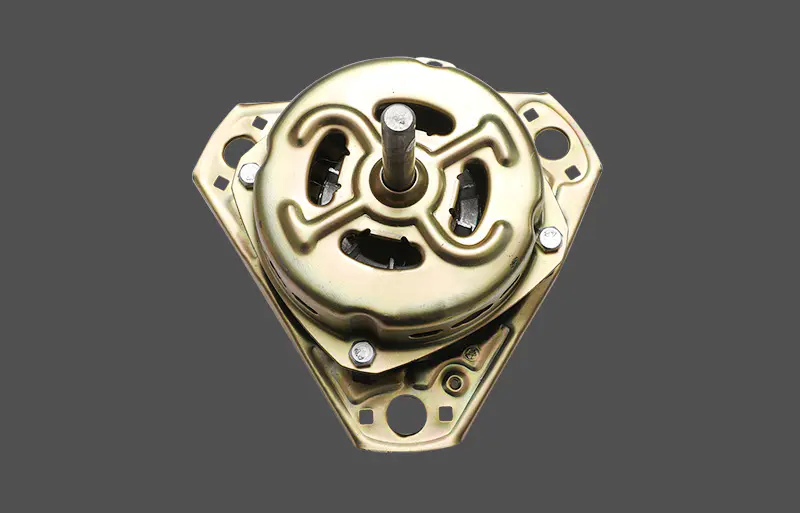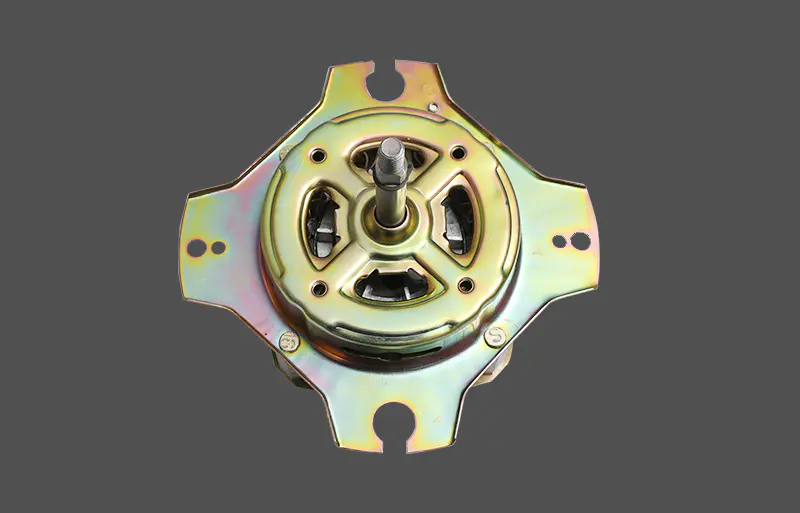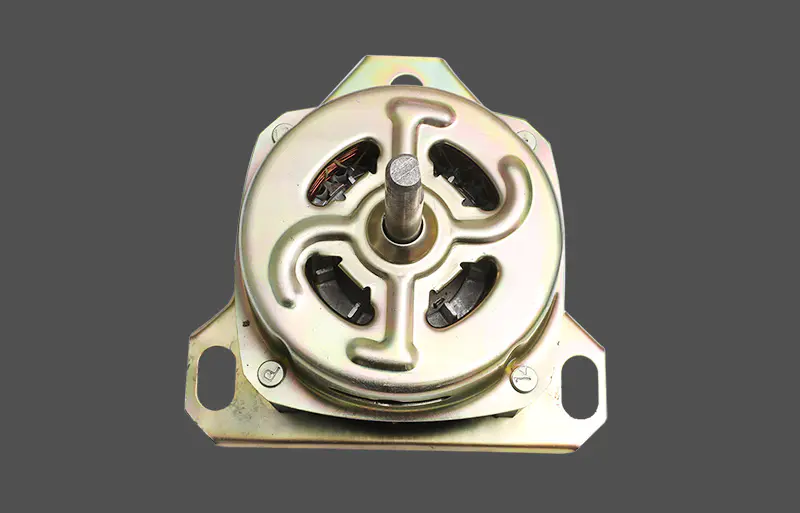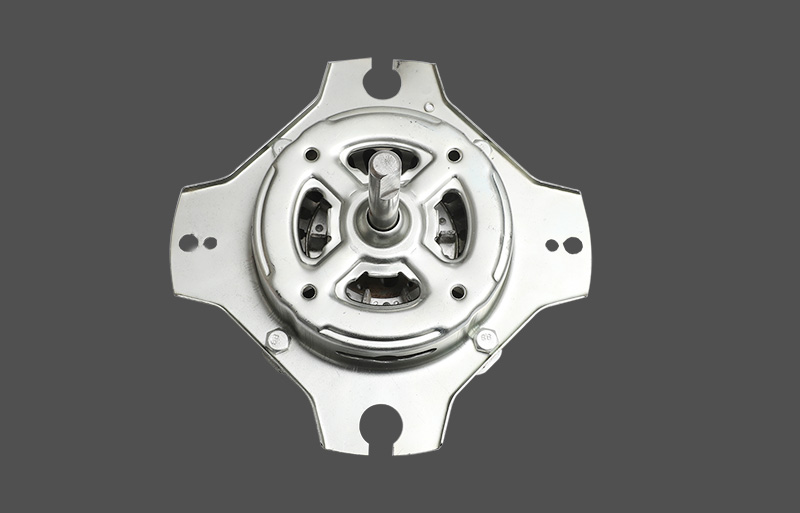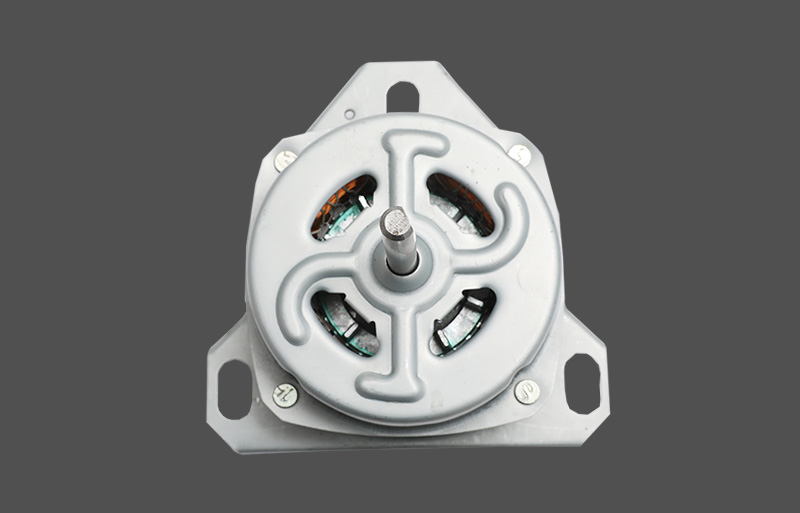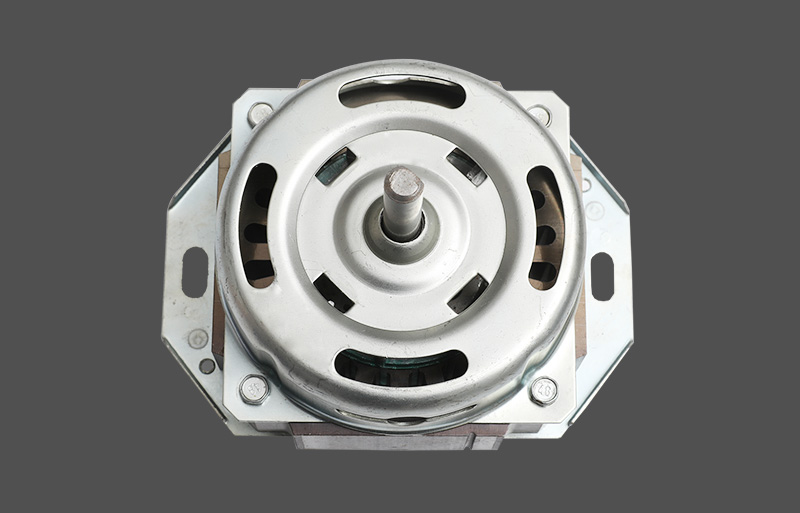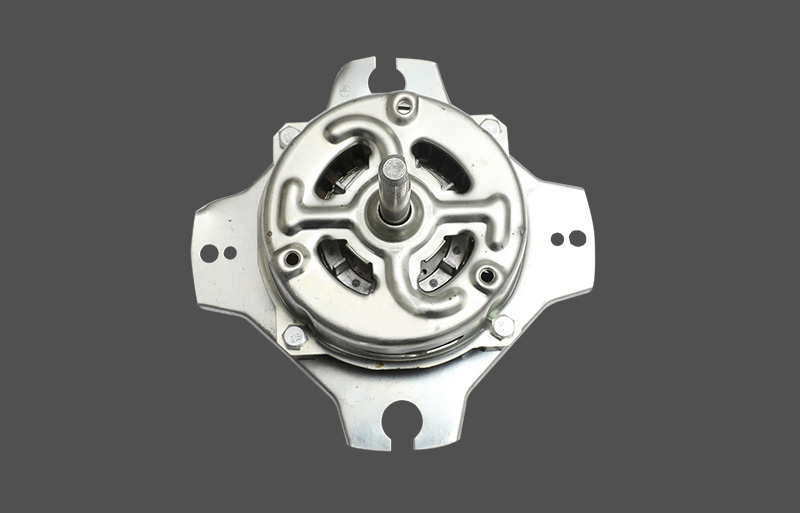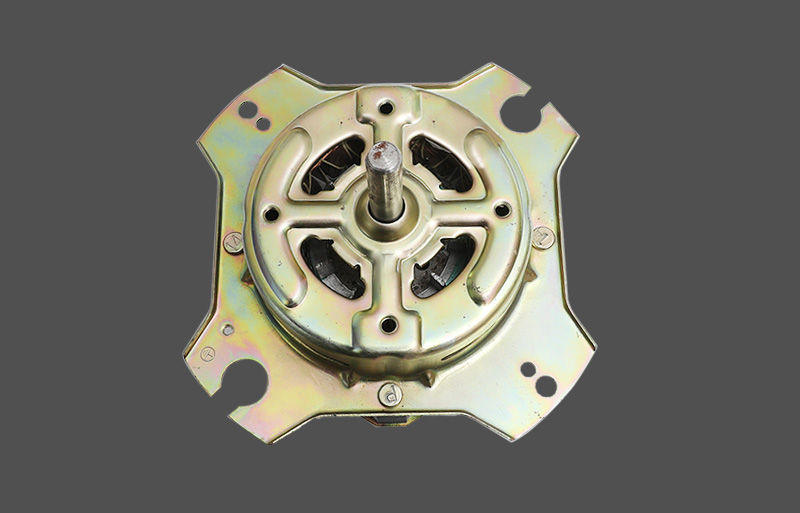The spin motor in a washing machine is a key component for high-speed drying. Over time, the spin motor may develop various faults, affecting spin efficiency, increasing noise and vibration, and even causing the entire machine to shut down. Understanding common fault types and causes will help you quickly diagnose and repair them, extending the life of the motor and washing machine.
Motor Failure to Start
A motor failure to start is the most common spin motor fault. Possible causes include insufficient power supply voltage or poor contact, open or short-circuited motor windings, activation of the motor protector, and a faulty control board or switch. Difficulty starting an induction motor may indicate a damaged starting capacitor or insufficient starting torque. If a brushless DC motor or permanent magnet synchronous motor fails to start, check the drive circuit, sensors, and control signals for abnormalities.
Abnormal Vibration
Abnormal vibration generated by the spin motor during operation can cause the entire machine to shake and increase noise. Causes of vibration include loose motor mounting bolts, rotor imbalance, worn or damaged bearings, loose or eccentric belts, and uneven clothing distribution. Vibration is more pronounced during high-speed spin cycles. Promptly adjusting the motor mounting position and inspecting the bearings and vibration damping devices can effectively reduce vibration. Abnormal Noise
Abnormal noise from the dehydration motor is a common fault. The noise may originate from mechanical sources, such as bearing wear, rotor striking the stator, or fan blade friction. Electrical causes include a partial short circuit in the motor winding, a faulty commutator, or Hall effect sensor. Control anomalies in brushless DC motors and permanent magnet synchronous motors can also cause humming or electromagnetic noise. Regular inspection of mechanical components and electronic control circuits can effectively reduce noise.
Overheating
The dehydration motor may overheat when running at high speeds. Main causes include long-term overload operation, winding short circuits, poor heat dissipation, insufficient bearing lubrication, or dust accumulation inside the motor. Induction motors and permanent magnet synchronous motors are more prone to overheating during continuous dehydration. Motor overheating can trigger the thermal protector, causing dehydration to stop, and even damage the motor windings. Maintaining good ventilation and regularly cleaning dust can reduce the risk of overheating.
Winding Short Circuit or Open Circuit
Short circuits or open circuits in the motor windings can directly affect the operation of the dehydration motor. A short circuit can cause difficulty starting the motor, excessive heating, and a fuse trip; an open circuit can cause the motor to stop operating. Winding failures may be caused by aging, insulation damage, humid conditions, or overload. Regularly testing the winding insulation resistance and resistance value can help detect potential problems early.
Bearing Wear or Damage
Bearings are critical mechanical components in the spin motor. Prolonged operation or poor lubrication can cause bearing wear, heating, increased noise, and increased vibration. Severe wear can cause the rotor to seize, resulting in motor failure. Regularly checking the bearing condition and lubrication is important for extending the life of the spin motor.
Motor Protector Triggering
Some washing machine spin motors are equipped with thermal protectors or overcurrent protectors. Frequent motor protector activation is usually caused by motor overheating, winding short circuits, overload, or power supply abnormalities. Protector activation can prevent motor burnout, but the cause of the fault must be promptly identified to prevent it from affecting the spin function.
Unstable Speed
Unstable spin motor speed can lead to poor spin results and excessive residual moisture in clothing. Causes may include abnormal drive control signals, sensor failure, power supply voltage fluctuations, or mechanical jamming. Electronic control anomalies in permanent magnet synchronous motors and brushless DC motors are more likely to cause speed fluctuations. Checking the drive circuit, sensors, and mechanical connections is a key step in resolving unstable speed.
Motor Burnout
Serious faults such as winding short circuits, overload, or poor heat dissipation can cause a dehydration motor to burn out. Burnout can produce a noticeable burning smell, smoke, and even sparks, leading to machine downtime and increased repair costs. Preventative measures include regular motor maintenance, dust removal, proper heat dissipation, and avoiding overloading.




